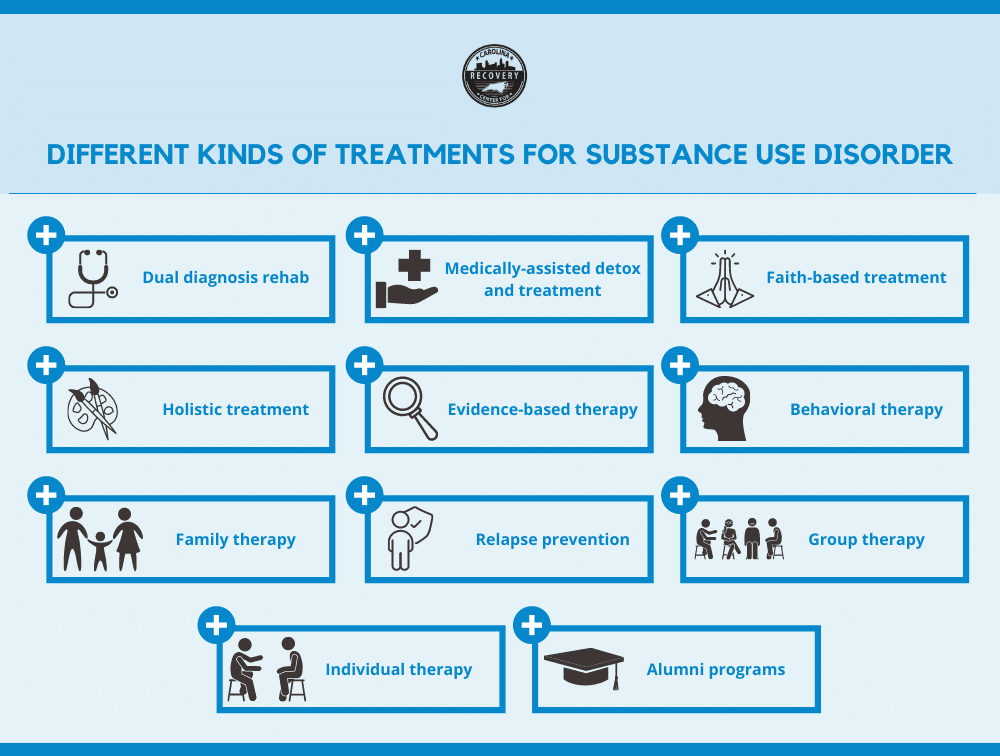Finding healing at rehab near Chester NJ for lasting healing
Wiki Article
A Comprehensive Guide to Substance Abuse Rehabilitation
Substance Abuse recovery, commonly described as rehabilitation, is an organized process created to assist individuals get rid of dependancy on drugs, alcohol, or various other addictive compounds. It is not just about cleansing-- it is a trip of mental, emotional, and physical improvement. Rehab centers supply secure environments where individuals can challenge the origin of their dependency, address psychological triggers, and learn coping devices to sustain long-term sobriety. This procedure is led by trained experts, consisting of specialists, clinical physicians, and counselors who understand the complicated nature of dependency as both a physiological and behavior problem.Understanding the Core of Substance Abuse Abuse Rehabilitation
At its core, rehab has to do with restoring an individual's life. Dependency often leaves behind deep scars-- strained relationships, financial distress, illness, and emotional instability. With detailed rehab programs, individuals are provided the tools to repair these aspects gradually. Rehab isn't practically avoiding materials; it has to do with redeeming control and discovering one's feeling of self-regard. The programs highlight structure, consistency, and personal accountability, which are key to lasting recuperation success. Every tiny landmark throughout rehab serves as a foundation for lasting soberness.In addition, Substance Abuse recovery is not a one-size-fits-all technique. It acknowledges that everyone's dependency tale is distinct-- what resulted in Substance Abuse abuse, just how it advanced, and exactly how recovery can be continual differ commonly. Treatment centers customize treatment plans based on specific evaluations, ensuring that every person gets assistance that lines up with their emotional state, addiction background, and life situations. This tailored technique greatly enhances recovery results and helps stop regression once individuals rehabilitate into daily life.
The Benefits of Inpatient Rehabilitation Programs
Inpatient rehabilitation, also referred to as domestic therapy, uses among one of the most reliable approaches for those battling severe Substance Abuse addiction. One of its main advantages is the distraction-free and organized setting. When an individual gets in an inpatient center, they are momentarily removed from external triggers-- such as pals that utilize compounds, difficult offices, or family members problems-- that could prevent their recuperation. This seclusion from adverse impacts enables individuals to focus completely on healing. Living within a monitored and supportive setting develops the security required to damage old routines and develop healthier patterns of behavior.Another significant benefit of inpatient rehab is the 24/7 expert supervision readily available per individual. Withdrawal signs from drugs or alcohol can be unpredictable and, in some instances, serious. Inpatient centers have medical teams that provide continuous treatment, guaranteeing patients are secure and comfy throughout cleansing. Beyond physical wellness, constant supervision also provides psychological confidence-- people recognize that assistance is available at any kind of time, which minimizes anxiety and constructs count on in the recovery process. This immediate accessibility to medical and emotional support dramatically improves the success price compared to outpatient treatment for serious dependencies.
Finally, inpatient rehabilitation programs promote a solid sense of area and accountability. Individuals connect with others who share comparable struggles, take part in team treatment, and engage in tasks that urge team effort and compassion. This setting nurtures shared understanding and lowers feelings of isolation often connected with dependency. By connecting with peers and picking up from their experiences, people create social bonds that remain to support them even after leaving the center. This feeling of belonging, combined with constant expert advice, makes inpatient rehabilitation a highly efficient foundation for lasting recuperation.
Inpatient Rehabilitation Services Provided
Inpatient rehab facilities use a varied series of services designed to treat the spirit, mind, and body simultaneously. The initial stage usually entails clinical detoxing, a procedure that securely gets rid of materials from the body while taking care of withdrawal signs and symptoms. Detoxification is managed by doctor that might provide medicine to alleviate pain and stop issues. Patients change to organized everyday programs that include therapy, therapy, and health activities as soon as detoxification is total. This incorporated strategy makes sure that clients not only get over physical reliance but additionally address psychological and emotional aspects of dependency.Restorative solutions are at the heart of inpatient rehab. Facilities deal individual treatment sessions, where clients function one-on-one with licensed specialists to uncover the underlying sources of their addiction-- such as injury, mental wellness conditions, or unsolved emotional discomfort. Cognitive-behavioral therapy (CBT), dialectical behavior modification (DBT), and inspirational interviewing are amongst the most typical evidence-based methods made use of. Additionally, team therapy sessions give a helpful room for individuals to share experiences, gain point of view, and establish social skills. Family members therapy is additionally frequently included, aiding to rebuild depend on and boost communication between people and their loved ones.
Beyond typical therapy, lots of inpatient programs consist of holistic and leisure services to promote total health - substance abuse treatment Morris County. Yoga, reflection, art treatment, and fitness programs help in reducing stress and anxiety and teach mindfulness. Nutritional counseling guarantees that individuals restore physical health, as Substance Abuse frequently depletes the body's necessary nutrients. Some rehabilitation focuses also supply trade training and academic workshops to assist individuals plan for reintegration right into culture. These varied solutions are made to recover the entire individual-- not simply deal with dependency signs-- by cultivating durability, balance, and get more function
Why You Should Consider Outpatient Programs
While inpatient rehab supplies an immersive and extensive technique, outpatient programs supply an option that enables flexibility for people who can not devote to full-time household therapy. Outpatient rehab enables people to obtain structured therapy and clinical support while maintaining their day-to-day obligations-- such as family, college, or work treatment. For lots of individuals with light to moderate dependency, outpatient treatment offers the best balance in between recovery and day-to-day life. It permits clients to exercise the coping skills they find out in real-world atmospheres, reinforcing their durability in the face of everyday challenges.One more factor to think about outpatient programs is their cost-effectiveness. Inpatient treatment can be expensive as a result of accommodation, dishes, and 24-hour supervision, which may not be monetarily possible for every person. Outpatient programs, however, normally cost less due to the fact that they do not require property stays. Numerous centers offer sliding-scale repayment alternatives or approve insurance coverage to make therapy accessible. For those who have actually currently completed inpatient rehab, transitioning right into an outpatient program works as an important continuum of care, assisting keep accountability and avoid regression via recurring support.
Furthermore, outpatient programs use a high level of customization. Patients can select between partial a hospital stay programs (PHP), extensive outpatient programs (IOP), or standard outpatient care, depending upon their degree of demand. Each alternative gives varying degrees of structure and time commitment. IOPs typically include several treatment sessions per week, while basic outpatient treatment could include weekly therapy check outs. This versatility makes sure that people can get expert aid like this tailored to their recovery stage, making outpatient programs a useful and empowering option for lasting healing upkeep.

Exploring Other Treatment Alternatives in Substance Abuse Abuse Recovery
Beyond outpatient and inpatient rehabilitation, there are several other treatment options available for individuals looking for healing from Substance Abuse dependency (addiction treatment). Medication-assisted treatment (FLOOR COVERING) is one such strategy, combining recommended drugs with behavior modification to take care of withdrawal symptoms and decrease desires. Drugs like methadone, buprenorphine, or naltrexone are a knockout post typically utilized in opioid dependency therapy, while acamprosate or disulfiram might support alcohol recovery. Floor covering aids support brain chemistry, permitting individuals to concentrate on therapy and way of living changes without the frustrating discomfort of withdrawal
Different therapies are likewise becoming progressively preferred basically Abuse treatment. These may consist of all natural methods like acupuncture, equine treatment, adventure-based counseling, and spiritual recovery programs. While these techniques may not change conventional treatment, they can match it by improving psychological regulation, self-awareness, and self-confidence. The goal of discovering different therapy options is to produce a recovery strategy that reverberates with each individual's worths, beliefs, and way of living. A customized mix of therapies usually produces the most lasting outcomes, equipping people to live a fulfilling, substance-free life.
The Course to Long-Term Soberness and Healing
Finishing rehabilitation-- whether inpatient or outpatient-- is only the beginning of a long-lasting recovery journey. Aftercare programs play a critical function in keeping soberness and avoiding regression. These programs might include continuous treatment, support system like Narcotics Anonymous or Twelve Step Programs, and sober living setups that provide continued framework. Uniformity and community are important; people that remain connected to recovery networks are more probable to maintain long-term development. Rehab shows the essential coping skills, but aftercare guarantees that those abilities are used and reinforced in real-life scenarios.Long-term recovery also depends upon way of life adjustments that support physical and psychological well-being. Establishing healthy behaviors-- such as routine workout, well balanced nourishment, and mindfulness methods-- assists bring back equilibrium to the mind and body. Taking part in purposeful activities like volunteering, going after pastimes, or reconnecting with loved ones can fill the emotional void left by Substance Abuse use. Focusing and creating a favorable way of thinking on future objectives provide recuperating individuals a renewed feeling of identification and instructions. Sobriety is not about deprivation; it has to do with redeeming life's splendor and chances.

With extensive rehab programs, people are offered the devices to repair these aspects gradually. Inpatient rehabilitation programs promote a strong sense of area and liability. While inpatient rehabilitation provides a intensive and immersive technique, outpatient programs supply an alternative that allows adaptability for individuals who can not devote to full time domestic treatment. Outpatient rehabilitation allows patients to obtain structured therapy and clinical support while keeping their day-to-day obligations-- such as college, work, or family members care. Past inpatient and outpatient rehab, there are numerous other therapy choices readily available for individuals looking for recovery from Substance Abuse dependency.
Report this wiki page